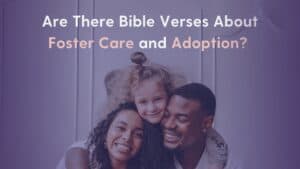“Bridge Organization” is a relatively new term in the world of foster care and adoption. But bridge organizations play an important role. From partnering with the government, training foster families, recruiting volunteers, and connecting churches, these organizations bridge the gap for children and teens in foster care.
Connector, Collaborator, Partner
The goal of a bridge organization is to serve as a connector, collaborator, and partner for the benefit of kids in foster care and their families. Bridge organizations live up to their name: they bridge people and communities.
Most bridge organizations partner with their local government, specifically the state child welfare agency. To support the state agency, bridge organizations will connect with churches, other foster care organizations, and national ministries to recruit foster families and volunteers, as well as spread the word about how anyone can get involved.
Myths about Bridge Organizations
Many people are confused about what bridge organizations do. The first myth is bridge organizations are “agencies.” In reality, bridge organizations are not licensed private agencies. They also do not provide social service work. Bridge organizations offer unique services, such as foster parent recruitment, training, support, and resources for foster families.
The second myth is bridge organizations have custody of children or place children in homes. The primary goal of a bridge organization is to connect groups of people. For instance, bridge organizations partner with child welfare agencies and walk alongside foster families and communities. They identify, recruit, and train volunteers to expand the support efforts.
The Importance of Bridge Organizations in Foster Care
Bridge organizations provide essential support for foster families through resources, training, and support groups. When foster families are supported, they are less likely to quit. The United States is in desperate need of foster families. Currently, there are over 400,000 children and teens in foster care. So it is important to keep those families who are already fostering. Bridge organizations ensure that every kid in foster care will have a home where they can heal from the trauma they have experienced.
Christian bridge organizations shine a light in the world of foster care and adoption. Motivated by James 1:27, bridge organizations build relationships. In other words, they show love to children and teens in foster care, and they encourage and equip foster families and volunteers. They also collaborate and build trust with state agency workers. In each of these encounters, bridge organizations can represent Christ.
Many Christian bridge organizations offer state-approved foster care training for families. Not all families who attend training will be believers. However, they will receive training and resources from a Christian perspective. This training has the potential to impact their lives forever. It can also prepare them to show love to the children in their care based on Christian principles. And when bridge organizations recruit Christian foster parents and volunteers, they increase the odds of others experiencing God’s love.
Examples of Bridge Organizations
It is important to understand the day-to-day operations of a foster care bridge organization. Take a look at two bridge organizations making a difference around the country.
The CALL in Arkansas
The CALL started in 2007 with a group of people wondering what Christians could do to solve the foster care crisis in Arkansas. They humbly approached the Department of Children and Family Services to ask what they needed. Over time, The CALL built trust with the state child welfare system through a highly collaborative relationship. The result of these efforts was a process for prospective foster families to become licensed.
“We are calling up Christians to serve in this mission field,” says Executive Director Lauri Currier. The CALL has recruited over half of the foster families that serve in the state of Arkansas. They provide resources, training, and ongoing support to foster families.
The CALL also recruits and trains volunteers. While some volunteers work directly with the government, others work with The CALL itself. Volunteers serve as church advocates, trainers, support group leaders, and at support centers as “hosts” for visits between biological parents and their kids. They also have the opportunity to serve at The CALL Mall, where biological and foster families can come to get clothing, toys, and other essential items at no cost.
Orphan Care Alliance in Kentucky and Southern Indiana
Orphan Care Alliance, which began in 2005, provides a variety of resources for foster families, churches, and kids in foster care. Their primary goal is to keep kids from entering foster care in the first place. To accomplish this, they provide respite care for families in need.
Orphan Care Alliance also provides extensive support for foster and adoptive families. With access to so many support groups and resources, foster and adoptive families can thrive. Youth in foster care can find mentorship and friendship through Life Coaches. Orphan Care Alliance educates Christians and encourages them to volunteer and support foster families. In the process, they advocate for kids in foster care.
As a bridge organization, Orphan Care Alliance works in the middle. Darren Washausen, who serves as the president and executive director, explains, “We’re connecting [the people who come to us] to the places that have the needs.” In Darren’s opinion, the most rewarding part is that they can see the success in the lives of the kids and families they serve. For example, they might watch a young adult who was formerly in foster care graduate from college. Or they might support a single, working mother who, in turn, can care for her children.
How Christians Can Get Involved
Scripture confirms that God cares about vulnerable children. As Christians, we are called to care for them too. “It’s hard to go near broken situations,” says Lauri Currier, executive director of The CALL. “But I feel that’s exactly what God is calling us to do: go near and experience the brokenness.”
For Christians who do not feel called to foster or adopt vulnerable children, there are hundreds of ways to get involved. Cook and deliver a meal to a foster family. Offer to help around the house by folding laundry and mowing the yard. Deliver care packages for foster families and the kids in their care.
Above all, trust that the Lord will multiply your efforts. Do not be afraid of developing deep relationships. Your investment of time, energy, and love will make an eternal impact.
















